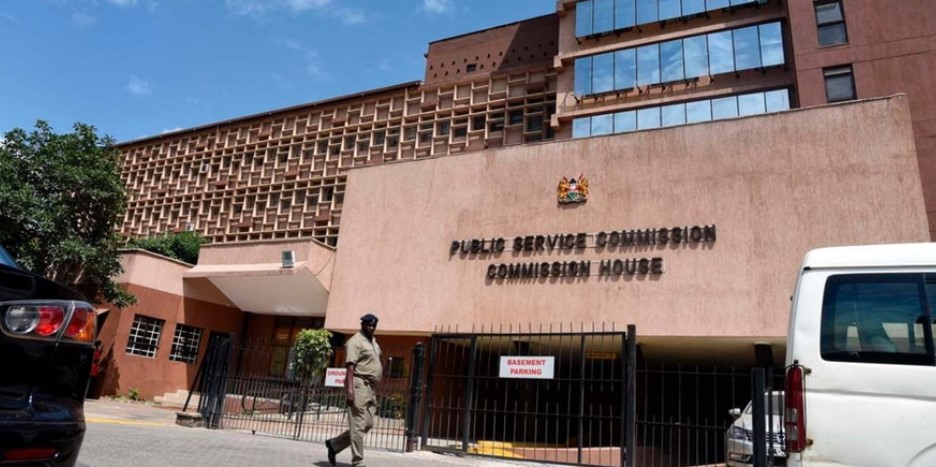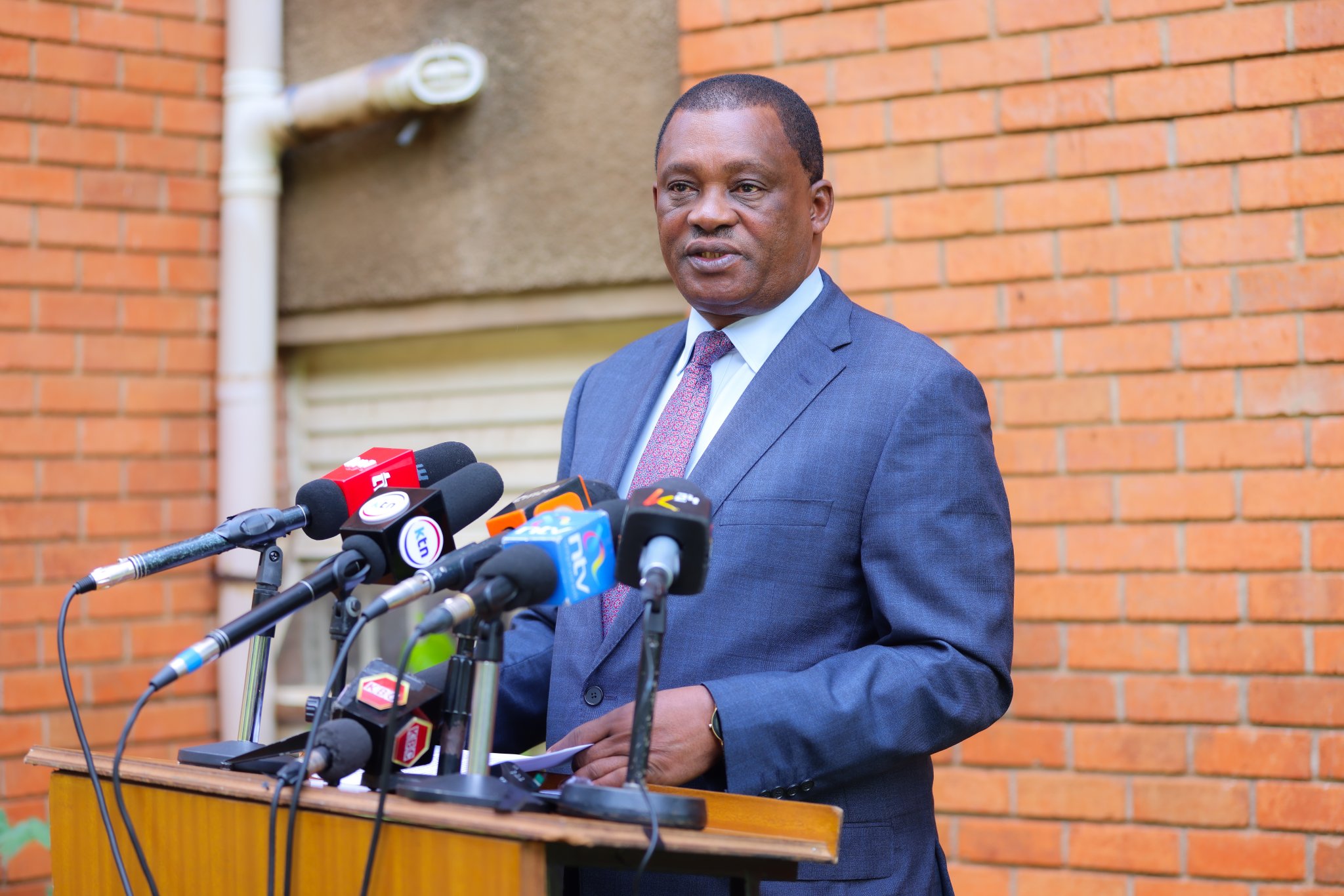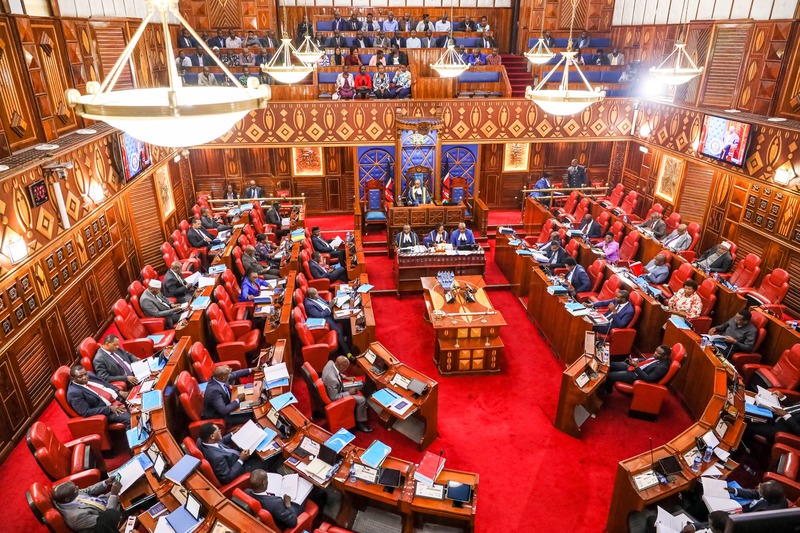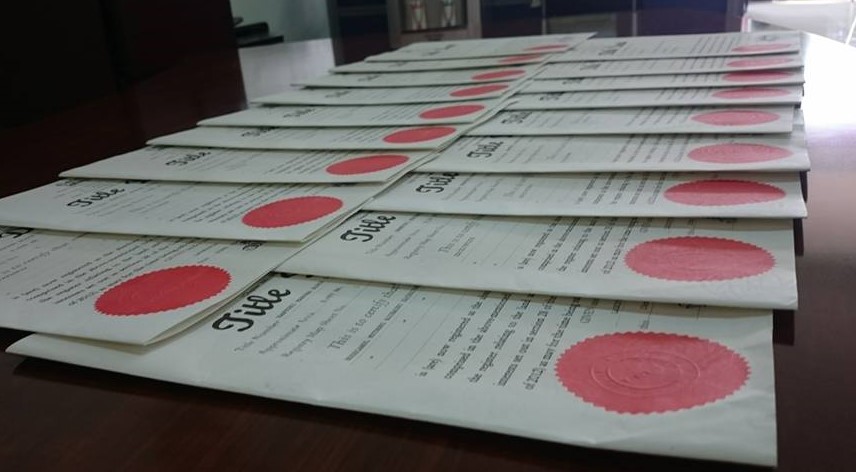Kenya loses Sh194.8 billion annually to illicit financial flows, Transparency International warns

The report notes that these losses, driven by corruption, trade misinvoicing and tax evasion, are eroding government revenue, limiting social services and slowing infrastructure development across the country.
Kenya continues to lose an estimated $1.51 billion (Sh194.8 billion) each year to illicit financial flows (IFF), a gap widened by the delayed implementation of key anti-corruption laws such as the Whistleblower Protection Act and the Enforcement of the Conflict of Interest Act, a report by Transparency International (TI) Kenya warns.
The report notes that these losses, driven by corruption, trade misinvoicing and tax evasion, are eroding government revenue, limiting social services and slowing infrastructure development across the country.
More To Read
- Lobby condemns legal attacks on whistleblowers, urges swift passage of Protection Bill
- Kenya loses over Sh250 billion annually to illicit trade and counterfeits - report
- Kenya Kwanza under fire: Civil groups decry killings, graft and constitutional violations
- Kenya losing over Sh79 billion annually to undervalued imports, says NTA
- Ruto assents to Conflict of Interest Bill after protracted parliamentary tussle
- World Bank withholds Sh96.93 billion loan to Kenya over delayed reforms
Illicit financial flows refer to illegal cross-border movements of money or capital derived from criminal activity, corruption, or deliberate misrepresentation of trade values. The report highlights that despite Kenya’s strong legal framework and constitutional guarantees for access to information and asset recovery, practical implementation remains weak and inconsistent.
“Implementation challenges are all driven by political interference and institutional fragmentation,” reads the report.
The losses expose persistent tax loopholes, even as the Kenya Revenue Authority (KRA) adopts technology to improve compliance. However, TI Kenya warns that technology alone cannot resolve the problem without integrity among officials overseeing the systems.
“Instead of burdening taxpayers, KRA should address the tax loopholes first. This factor affects the performance of the economy and limits the kind of services that should be extended to the citizens while affecting infrastructure development,” TI Kenya executive director Sheila Masinde said.
According to the organisation, Kenya’s National Ethics and Anti-Corruption Policy (2018) stresses the importance of whistleblower protection in curbing graft. Yet, weak implementation, limited public awareness, and inconsistent application across sectors have discouraged whistleblowing.
“Whistleblowers are frontline detectors, but without credible anonymity and compensation schemes, the flow of tips dries up. That delay allows illicit funds to exit the jurisdiction before tax authorities. The cost is twofold: revenue is lost, and deterrence evaporates, inviting further embezzlement,” reads the report.
Masinde warned that as billions slip through these cracks, vital sectors such as education and health continue to face underfunding while public debt balloons. She noted that whistleblowers, who play a critical role in exposing misconduct, face retaliation and stigma.
“They risk retaliation, job loss and physical threats. Cultural stigma compounds legal weaknesses, with whistleblowing often perceived as betrayal rather than civic duty,” she said.
The report cites the case of Andrew Kipkirui Rotich, the Deputy Director of Forensic Audit and Risk Assurance at the Social Health Authority (SHA), who lost his job after exposing ghost healthcare facilities. His experience, TI Kenya said, mirrors the fear that keeps many potential whistleblowers silent.
The Institute of Certified Public Accountants of Kenya (ICPAK) has echoed these concerns, urging the government to fast-track legal protections for those who expose corruption.
“We need an establishment of a National Whistleblower Policy and enactment of the Whistleblower Act, even as it firmly supports whistleblowers who use the established framework to report such misconduct,” ICPAK said in a statement.
Kenya’s access to information (ATI) regime is anchored in Article 35 of the 2010 Constitution, which guarantees citizens the right to information held by the state. This was operationalised through the Access to Information Act 2016, which outlines procedures for requesting information and timelines for government responses. The Commission on Administrative Justice (CAJ) serves as the oversight body enforcing compliance.
Since the Act’s implementation, CAJ has received 246,760 information requests, granting 229,054 (92.8 per cent) and declining 242. Between 2020 and 2021, public institutions received 77,845 requests, disclosing 77,579 (99.66 per cent). In the previous year, 130,207 of 130,492 requests (99.78 per cent) were granted. However, the commission notes persistent delays and incomplete responses, with 91.5 per cent of appeals linked to failure by institutions to provide satisfactory feedback.
Challenges include poor digitisation of government records, a culture of secrecy, weak records management, and inadequate technical capacity among officers.
“Many journalists do not know how to request information from government bodies and when denied, they also don’t know how to appeal,” one CAJ official noted.
In a landmark ruling in Muchiri v Eldoret Hospital Ltd (2022), the High Court held that private institutions could be compelled to release information if required for the protection of constitutional rights. The report said the judgment reinforced citizens’ right to access information even beyond government agencies.
Kenya’s asset recovery framework, anchored in the Proceeds of Crime and Anti-Money Laundering (POCAMLA) Act 2009 and strengthened by 2017 amendments, has also made strides through the Assets Recovery Agency (ARA) and Ethics and Anti-Corruption Commission (EACC). However, the report highlights that overlapping mandates and weak coordination continue to undermine results.
EACC’s 2023/24 annual report shows the commission filed 47 new civil suits to recover assets worth Sh9.2 billion and successfully recovered Sh2.9 billion in illegal wealth. It also traced Sh6.63 billion in public property currently under recovery and filed 62 additional civil suits targeting assets estimated at Sh8.73 billion, including land and cash.
Major targets included Tana Athi Water Works Development Agency (Sh26.7 billion), Kenya Electricity Transmission Company (Sh18.5 billion), Ministry of Health (Sh10.2 billion), Tourism Fund (Sh8.5 billion) and Kenya Railways Staff Retirement Benefits Scheme (Sh8 billion).
The report further notes that the Companies Act 2015 and its Beneficial Ownership Regulations require disclosure of individuals who control 10 per cent or more of a company. However, restricted public access to the register limits oversight by journalists and civil society.
Without public access, TI Kenya notes that programmes such as the Access to Government Procurement Opportunities (AGPO), which reserves 30 per cent of public contracts for women, youth and persons with disabilities, remain vulnerable to manipulation by politically connected entities using proxies.
TI Kenya’s comparative analysis under the African Union Convention on Preventing and Combating Corruption (AUCPCC) found that while Kenya has strong laws, enforcement remains weak. The report rates Access to Information at 3.3, Asset Recovery at 3.7, Beneficial Ownership at 3.3 and Whistleblower Protection at 3.0.
The findings recommend full digitisation of public records, clearer inter-agency coordination, and urgent passage of the Whistleblower Protection Bill. The report also revealed that Kenya’s Anti-Corruption Court currently has only one voice distortion machine, highlighting the limited resources available to protect whistleblowers.
Top Stories Today















































